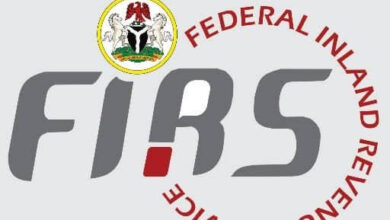FG Condition Cash Transfer Disbursement: Drop Your Account number

The Federal Government of Nigeria has announced the disbursement of N330 billion in cash transfers to
According to Finance Minister Wale Edun, the initiative is back on track after earlier delays caused by
integrating biometric data with the National Identity Number (NIN) system.
Breakdown of the Disbursement
Minister Edun explained in Abuja that each of the targeted households is entitled to a
N25,000 monthly cash transfer, with most already receiving one tranche, while others have received up to three.
Out of the 15 million households targeted nationwide, 8.5 million have so far benefited.
The remaining 7 million households are expected to be paid before the end of the year.
In his words: “This safety net to help people cope with rising prices is now firmly back on track. It lays the
foundation for a modern social protection system promised by President Bola Ahmed Tinubu.”
Why the Delay in Payments?
According to Funmi Olotu, head of the
National Social Safety Net Coordinating Office (NASSCO),
the transition to digital payments tied to NIN verification was a major reason behind the delay.
She stressed that while the process slowed down immediate disbursements, it was a crucial step for ensuring
transparency, accountability, and eliminating ghost beneficiaries.
She noted: “Mr President said no more traditional payments—pay directly into accounts.”
This digital-first approach required close collaboration with the
National Identity Management Commission (NIMC).
So far, over 10.2 million NINs have been collected, with 9.6 million verified.
The Role of the National Social Register (NSR)
The programme is anchored on the National Social Register (NSR), which contains data on more than
70 million Nigerians across 19.7 million households. This register was developed with support
from the World Bank and uses
40 socioeconomic indicators to determine eligibility.
Importantly, Olotu emphasized that the NSR is non-political and immune from government manipulation.
Neither the Finance Minister nor the President has the authority to add or remove names.
An executive order now mandates that all government interventions must draw from the NSR,
making it the backbone of Nigeria’s poverty alleviation system.
A Closer Look at the Conditional Cash Transfer Scheme
The conditional cash transfer scheme was officially launched by President Tinubu on
October 17, 2023. Its primary goal is to cushion economic hardship, reduce inequality,
and support families struggling with the rising cost of living. Beneficiaries are not required to meet
strict conditions beyond registration and verification, making it a straightforward intervention programme.
Each household is entitled to N75,000 across three months (N25,000 per month).
For families living on less than $1.90 per day, this cash injection provides temporary relief,
helping them afford food, healthcare, and school-related expenses.
Challenges Facing the Programme
Despite its benefits, the initiative faces multiple challenges:
- Delays in NIN Verification: Millions of Nigerians are still struggling to link their NINs, slowing the disbursement process.
- Banking Access: Some poor households in rural areas lack functional bank accounts, limiting access to digital transfers (Central Bank of Nigeria).
- Inflation Impact: With inflation surpassing 25%, the N25,000 stipend may not go far enough to cover rising living costs.
- Trust Deficit: Skepticism remains high among citizens who fear politicization of welfare benefits.
Expert Opinions on the Disbursement
Economists have welcomed the initiative but stressed that cash transfers alone cannot solve poverty.
According to Dr. Uche Okeke, a development economist, “While the programme provides short-term relief,
the government must also create sustainable job opportunities, invest in agriculture, and stabilize the naira
to reduce dependency on cash handouts.”
See African Development Bank insights for further perspectives on poverty interventions.
Civil society groups have also called for independent monitoring mechanisms to ensure transparency
in the disbursement process. Digital auditing and public dashboards have been suggested as ways to track progress.
Impact on the Nigerian Economy
Injecting N330 billion into the economy has both positive and negative effects.
On the positive side, households now have increased purchasing power, which stimulates local trade.
On the negative side, however, such cash injections could further fuel inflationary pressures
if not matched with increased production (IMF report on inflation in Africa).
Nonetheless, the government argues that without this intervention, millions of Nigerians would be left behind
in the ongoing economic reforms.




